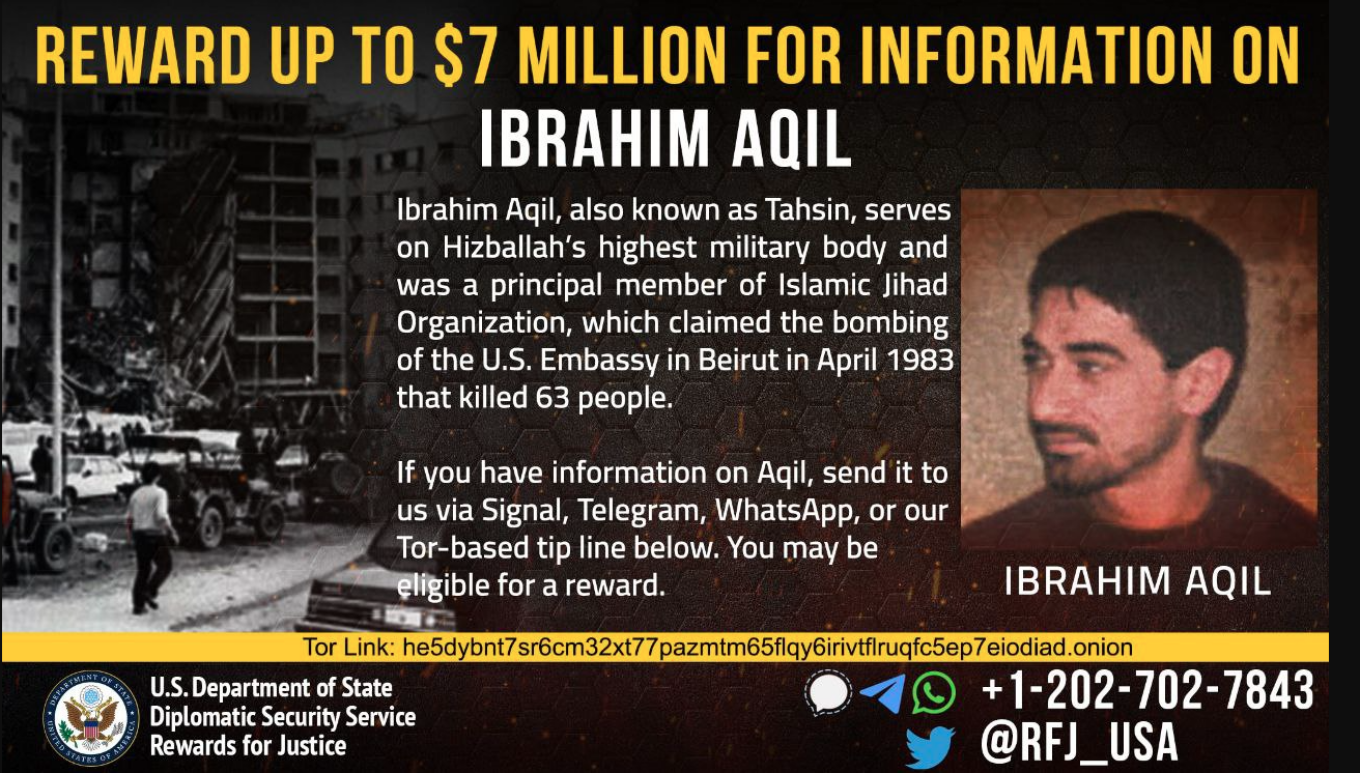News agencies such as Agence France-Presse, Sky News, and Reuters report that Aqil died in the Israeli Defense Forces (IDF) strike, although Hezbollah has not officially confirmed this. Reuters also noted that other members of Hezbollah’s elite Radwan unit were killed in the same attack.
Israeli media earlier confirmed that Aqil, also known as Tahsin and considered the “number 2” in Hezbollah’s military operations after Fuad Shukr (who was killed weeks ago in another Israeli strike), was a key target due to his role as head of Hezbollah’s Operational Directorate.

German news agency dpa reported that Aqil had been released from a Beirut hospital earlier that morning, having been injured in recent Hezbollah radio bombings.
Aqil was a crucial figure within Hezbollah and participated in its highest military authority, the “Jihad Council.” He played a significant role in numerous terrorist attacks and has been wanted by the United States for his involvement in the 1983 bombing of the U.S. Marine barracks in Beirut, which killed 63 people. He was also linked to the kidnapping of American and German citizens in Lebanon during the 1980s, events that placed him high on international terrorist watch lists.
In 2019, the U.S. State Department designated Aqil as a “Global Terrorist” and offered a $7 million reward for information leading to his capture.
The U.S. accuses Aqil of participating in various terrorist plots during the 1980s and 1990s, including the April 1983 attack on the U.S. embassy in Beirut.
This recent strike in Beirut is part of an ongoing series of Israeli air raids aimed at weakening Hezbollah’s military capabilities and eliminating its leadership. The escalating violence and retaliatory attacks between the two sides have increased tensions in the region, sparking concerns from the international community about the potential for a broader conflict.
Ask me anything
Explore related questions





